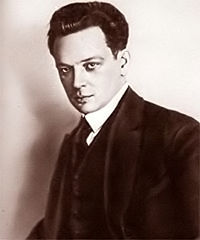 Title: Big Bad Wolf (Goodreads)
Title: Big Bad Wolf (Goodreads)
Series: Bodenstein & Kirchhoff #6
, 2014
Pages: 404
Buy: Book Depository (or visit your local Indie bookstore)
After finishing The New York Trilogy I needed something light, something I didn’t have to analyse. I picked up Big Bad Wolf because I enjoyed Snow White Must Die so much. I’m not saying that I can’t analyse a novel like this one (you can analyse every text), I just think at times some light reading is needed. Big Bad Wolf tells the story of a crime that happened on the river Main near Frankfurt. Investigators Pia Kirchhoff and Oliver von Bodenstein are back to investigate the crime, as the case progresses they find it taking them into a pit of evil and cruelty in the midst of a middle class utopia.
I am trying to make an effort to read more translated fiction; I loved Snow White Must Die which is book four in the series but only the first one to be translated into English. This is book six in the same series and I have to wonder why a publisher would publish books in such a weird order; this was a similar issue that happened with Jo Nesbø. I understand that a publisher would want to translate the novels that will sell the best but if Nele Neuhaus’ popularity continues to grow at this rate we will have another Nesbø situation.
Everything I loved about Snow White Must Die is absent in Big Bad Wolf; I think the problem is that Pia Kirchhoff and Oliver von Bodenstein are considered the main protagonists while Snow White Must Die focused more on the life of a man who served ten years for a crime he didn’t commit. That is what fascinated me but Big Bad Wolf is just another crime novel.
I’ve read so many great crime novels now that I find most of them clichéd and formulaic, Big Bad Wolf isn’t that bad but I’m looking for books that do something different and fresh with the genre. There are some decent moments in Big Bad Wolf, some unexpected twists but I wanted more. The novel is darker than most popular crime novels but keeps to the standard formula. One thing I did find difficult about this novel was the amount of view points, making it difficult at times to understand what was going on but this is an acceptable method for building suspense.
I highly recommend Snow White Must Die, if you haven’t tried some German translated crime before then this might be a good starting point. As for Big Bad Wolf, I’m disappointed with the end result but others might enjoy it more than I do. I hope Nele Neuhaus’ other novels are more like Snow White Must Die but I won’t be in a hurry to try her works again.




 Title: The New York Trilogy (
Title: The New York Trilogy (
 Title: The Yellow Papers (
Title: The Yellow Papers (

 One of the things I love about book blogging is just expressing my bookish thoughts, the stuff I’ve been thinking about. My goal was to post a non-review at least once a week (Saturday) but sometimes life gets in the way, you get busy and fall behind on book reviews. I’m pleased to say I’ve written all my book reviews so now I can get back to what I love about book blogging. Two years ago (this month) I started book blogging, my newfound love for literature was evident on my now neglected autodidactic blog
One of the things I love about book blogging is just expressing my bookish thoughts, the stuff I’ve been thinking about. My goal was to post a non-review at least once a week (Saturday) but sometimes life gets in the way, you get busy and fall behind on book reviews. I’m pleased to say I’ve written all my book reviews so now I can get back to what I love about book blogging. Two years ago (this month) I started book blogging, my newfound love for literature was evident on my now neglected autodidactic blog  Title: Breakfast at Tiffany’s (
Title: Breakfast at Tiffany’s (
